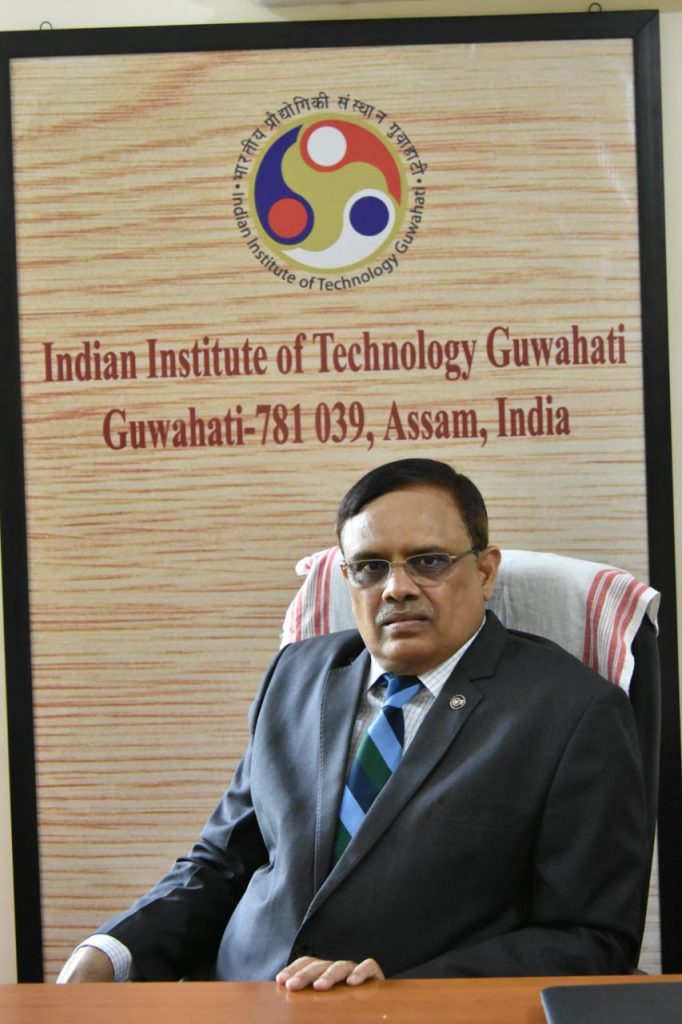From Sudip Sharma Chowdhury

GUWAHATI : World Water Day is an international observance day, celebrated on March 22 every year to celebrate water and raising awareness of the global water crisis with the core focus of achieving Sustainable Development Goal (SDG) 6: water and sanitation for all by 2030. Researchers at the Indian Institute of Technology Guwahati have developed a technology to provide iron, arsenic, fluoride, and other contaminants-free drinking water to the rural people of Assam with the help of their various prototype units and innovative technology. Arsenic and fluoride contamination in drinking water is a foremost and growing concern among rural people not only in Assam but also in major parts of the country and IIT Guwahati’s technology will succour and assist the Government of India in providing contamination-free drinking water to the people. Prof. Mihir Kumar Purkait from the Department of Chemical Engineering, IIT Guwahati has developed various types of prototype units (based on nanotechnology, adsorption, and electrocoagulation techniques) for the treatment of Iron, Arsenic and Fluoride contaminated drinking water for household and community purposes. Prof. M K Purkait of IIT Guwahati has also developed and installed many water treatment plants in schools, temples and in the rural areas where pipewater supply is not available. Case study 1: Water treatment plant (300 L/h) has been installed in the Lathiabagicha Primary School in Guwahati, Assam. This area is highly contaminated with Iron, high COD (Chemical Oxygen Demand) and the water had a bad smell. The school was facing issues to provide fresh drinking water for their students. Prof. M K Purkait installed water treatment plant (300 L/h) in the School. The plant is capable of treating TS, COD (Chemical Oxygen Demand), BOD (Biochemical Oxygen Demand), Iron and Arsenic from contaminated drinking water to much below its BIS (Bureau of Indian Standards) limit. The treated water is also used for cooking of mid-day meals in the school. More than 120 students of this primary school and the villagers of Lathiabagicha (>500) are now able to access good drinking water throughout the year. Case study 2: Installation of a plant for the treatment of Arsenic, Iron and Fluoride contaminated drinking water in the famous “Doul Govinda Temple” in North Guwahati, India. The plant can treat TS, COD (Chemical Oxygen Demand), BOD (Biochemical Oxygen Demand), Iron, Arsenic and Fluoride contaminated drinking water. The treated water is used by the temple authorities for their day-to-day drinking water requirement in the temple and their guest house.
Villagers living near the temple now have access to contaminant-free drinking water. More than 5000 people are using this water every day for drinking purposes now. Speaking on World Water Day, Prof TG Sitharam, Director, IIT Guwahati said, “Supply of contaminant free drinking water to the villagers where pipe water supply scheme from the Government has not yet reached them is a major problem in most of the States of the country, including Assam. The technology adopted here might be useful to the citizens both in rural and urban areas for getting contaminant free drinking water. The initiatives taken by Prof. Mihir Kumar Purkait of IIT Guwahati to supply contaminant-free drinking water to the schools and temples in the remote areas will definitely improve the rural health and fulfil the 6th Sustainable Development Goal.” Speaking on World Water Day, Prof. M K Purkait, Department of Chemical Engineering, IIT Guwahati said, “Fluoride contamination is a worldwide problem now-a-days. To remove this contaminant from water, a new nano-adsorbent was synthesized by applying a novel nanomagnetite aggregation process through the formation procedure of iron oxide hydroxide, i.e., schwertmannite (Fe 8 O 8 (OH) 6 (SO 4). This is a composite of ferromagnetic and paramagnetic materials as well which improves the ?uoride adsorption capacity many fold than that of commercially available in the market. The methodology and details of this nano-adsorbent and its various forms are already published in several international journals of repute.” This technology is based on the adsorption principle using Nanomagnetite aggregated schwertmannite as an efficient adsorbent developed by Prof. Mihir Kumar Purkait, and his PhD scholar Dr. Aparajita Goswami of the Department of Chemical Engineering, IIT Guwahati, in which harmful pollutants such as fluoride and other contaminants can be removed efficiently.
These water treatments plants are installed as a part of DST (Department of Science and Technology) sponsored project on “Centre for Technological Excellent in Drinking water purification. The centre is virtual in nature within IIT Kharagpur, IIT Guwahati, Jadavpur University, National Institute of Technology Delhi and Indian Institute of Chemical Technology, Hyderabad. Other than this for over a decade, the Water Quality Research Group of the Indian Institute of Technology Guwahati have played a major role in the rural drinking water sector in Assam.
Following a rapid assessment for drinking water quality back in 2005, it was decided to have a partnership to facilitate the Public Health Engineering Department (PHED) in the successful implementation of sustainable drinking water security in rural areas in Assam. The joint partnership of UNICEF, IIT Guwahati and Public Health Engineering Department (PHED) initiated the Arsenic Screening and Surveillance Program in Assam covering the period 2005-2011. The UNICEF-IITG-PHED partnership was successful in achieving some of the key milestones during the cycle spanning from 2005-2012, and IIT Guwahati was instrumental in bringing in these outcomes,


